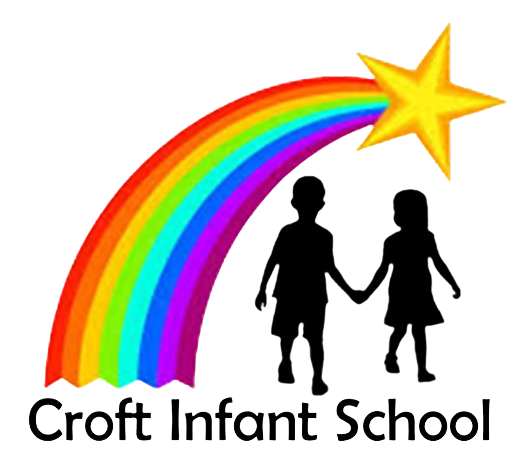Speaking and Listening
Intent
Our school recognise that Speaking and listening skills are an important part of a pupil’s development across the whole curriculum – cognitively, socially and linguistically. We know that spoken language underpins the development of reading and writing. We are aiming to reduce the language gap between those children who come from a language rich home compared to those where spoken language is not a focus by ensuring all children experience high quality interactions and conversations throughout the day with knowledgeable adults.
At Croft Infant school we aim for our children to:
- develop a wide range of vocabulary
- use spoken language to learn; to discuss and explain clearly their understanding and ideas
Implement
In EYFS and KS1 the skills are taught specifically through the high quality language interactions between adults and pupils across the day. The critical link between the importance of talk and stories with, especially the role stories play in developing young children’s vocabulary and language are a key priority for adults to embed throughout our curriculum through expectations and activities within Continuous Provision.
During the day our children will experience:
- being greeted into school and encouraged to acknowledge and reply
- adults listening carefully with patience to ensure children feel that what they say is important
- adults demonstrating good listening skills
- adults demonstrating non-verbal interactions
- adults using Makaton signs to support pre-verbal and SEND children
- adults re-modelling correct pronunciation
- adults thinking out loud, modelling new language and their own thought chain
- adults asking closed and open questions
- adults explaining why things happen
- opportunities for daily story time
- new vocabulary introduced and explained in all areas of the curriculum
- opportunities to retell and make up new stories through puppets, stories, songs, poems, rhymes and small world within Continuous Provision
Children are not formally assessed for speaking and listening. Adults assess through their high quality interactions and observations. Children identified as working below their age-related expectations are considered for the Talk Boost Intervention Programme, where they have the opportunities for small group speaking and listening skills to be developed.
Impact
Children will be able:
- to know when to listen and how to listen well
- to articulate what they know and understand across all areas of the curriculum in well-formed sentences
- use a wide range of vocabulary; including the use of subject specific vocabulary.
- to read fluently with excellent levels of comprehension
